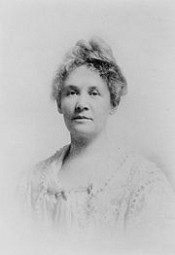Sophocles

Sophocles (pronounced /ˈsɒfəkliːz/ in English; ancient Greek Σοφοκλῆς Sophoklēs, probably pronounced [sopʰoklɛ̂ːs]; c. 496 BC-406 BC) was the second of the three ancient Greek tragedians whose work has survived. His first plays were written later than those of Aeschylus and earlier than those of Euripides. According to the Suda, a 10th century encyclopedia, Sophocles wrote 123 plays during the course of his life, but only seven have survived in a complete form: Ajax, Antigone, Trachinian Women, Oedipus the King, Electra, Philoctetes and Oedipus at Colonus.[1] For almost 50 years, Sophocles was the most-awarded playwright in the dramatic competitions of the city-state of Athens that took place during the religious festivals of the Lenaea and the Dionysia. Sophocles competed in around 30 competitions; he won perhaps 24 and never received lower than second place; in comparison, Aeschylus won 14 competitions and was defeated by Sophocles at times, while Euripides won only 4 competitions.[2] The most famous of Sophocles' tragedies are those concerning Oedipus and Antigone: these are often known as the Theban plays, although each play was actually a part of different tetralogy, the other members of which are now lost. Sophocles influenced the development of the drama, most importantly by adding a third actor and thereby reducing the importance of the chorus in the presentation of the plot. He also developed his characters to a greater extent than earlier playwrights such as Aeschylus.[3] Sophocles, the son of Sophillus, was a wealthy member of the rural deme (small community) of Colonus Hippius in Attica, which would later become a setting for his plays, and was probably born there.[4][5] His birth took place a few years before the Battle of Marathon in 490 BC: the exact year is unclear, although 497/6 is perhaps most likely.[6][4] Sophocles' first artistic triumph was in 468 BC when he took first prize in the Dionysia theatre competition over the reigning master of Athenian drama, Aeschylus.[4][7] According to Plutarch the victory came under unusual circumstances. Instead of following the custom of choosing judges by lot, the archon asked Cimon and the other strategoi present to decide the victor of the contest. Plutarch further contends that Aeschylus soon left for Sicily following this loss to Sophocles.[8] Although Plutarch says that this was Sophocles' first production, it is now thought that this is an embellishment of the truth and that his first production was most likely in 470 BC.[5] Triptolemus was probably one of the plays that Sophocles presented at this festival.[5] Sophocles became a man of importance in the public halls of Athens as well as in the theatres. Sophocles was chosen to lead the paean, a choral chant to a god, at the age of 16 celebrating the decisive Greek sea victory over the Persians at the Battle of Salamis. This rather insufficient information about Sophocles’ civic life implies he was a well-liked man who participated in activities in society and showed remarkable artistic ability. He was also elected as one of ten strategoi, high executive officials that commanded the armed forces, as a junior colleague of Pericles. Sophocles was born extremely wealthy (his father was a wealthy armour manufacturer) and was highly educated throughout his entire life. Early in his career, the politician Cimon might have been one of his patrons, although if he was there was no ill will borne by Pericles, Cimon's rival, when Cimon was ostracized in 461 BC.[4] In 443/2 he served as one of the Hellenotamiai, or treasurers of Athena, helping to manage the finances of the city during the political ascendancy of Pericles.[4] According to the Vita Sophoclis he served as a general in the Athenian campaign against Samos, which had revolted in 441 BC; he was supposed to have been elected to his post as the result of his production of Antigone.[9] In 420 he welcomed and set up an altar for the icon of Asclepius at his house, when the deity was introduced in Athens. For this he was given the posthumous epithet Dexion (receiver) by the Athenians.[10] He was also elected, in 413 BC, to be one of the commissioners crafting a response to the catastrophic destruction of the Athenian expeditionary force in Sicily during the Peloponnesian War.[11] Sophocles died at the venerable age of ninety in 406 or 405 BC, having seen within his lifetime both the Greek triumph in the Persian Wars and the terrible bloodletting of the Peloponnesian War.[4] As with many famous men in classical antiquity, Sophocles' death inspired a number of apocryphal stories about the cause. Perhaps the most famous is the suggestion that he died from the strain of trying to recite a long sentence from his Antigone without pausing to take a breath; another account suggests he choked while eating grapes at the Anthesteria festival in Athens. A third account holds that he died of happiness after winning his final victory at the City Dionysia.[12] A few months later, the comic poet wrote this eulogy in his play titled The Muses: "Blessed is Sophocles, who had a long life, was a man both happy and talented, and the writer of many good tragedies; and he ended his life well without suffering any misfortune."[13] This is somewhat ironic, for according to some accounts his own sons tried to have him declared incompetent near the end of his life; he is said to have refuted their charge in court by reading from his as yet unproduced Oedipus at Colonus.[14] Both Iophon, one of his sons, and a grandson, also called Sophocles, followed in his footsteps to become playwrights themselves.[15] It was common in fifth-century Greece for men of the upper classes to cultivate sexual relationships with adolescent boys. Sophocles was one such participant in the relationship between the erastês ("lover") and eromenos ("beloved").[16] Athenaeus reports two stories of this kind, one, if authentic, from a contemporary: a symposium in which Sophocles cleverly steals a kiss from the boy sitting next to him,[17] and another in which Sophocles entices a young boy to have sex outside the walls of Athens, and the boy takes Sophocles' cloak.[18] According to Plutarch, when he caught Sophocles admiring a young boy's looks, Pericles rebuked him for neglecting his duty as a strategos.[19] Sophocles' sexual appetite reportedly lasted well into old age. In The Republic (1.329b-329c) Plato tells us that when he finally succumbed to impotence, Sophocles was glad to be free of his "raging and savage beast of a master."[20] it is debatable how far such anecdotes were invented as references to this well-known passage. In yet another such account, a satirical one by Machon involving a hetaira known for her ironical sense of humor, we are told that, "Demophon, Sophocles' minion, when still a youth had Nico, already old and surnamed the she-goat; they say she had very fine buttocks. One day he begged of her to lend them to him. 'Very well,' she said with a smile,—'Take from me, dear, what you give to Sophocles.'"[21][22] Among Sophocles' earliest innovations was the addition of a third actor, which further reduced the role of the chorus and created greater opportunity for character development and conflict between characters.[3] Aeschylus, who dominated Athenian playwrighting during Sophocles' early career, followed suit and adopted the third character into his own work towards the end of his life.[3] Aristotle credits Sophocles with the introduction of skenographia, or scenery-painting. It was not until after the death of the old master Aeschylus in 456 BC that Sophocles became the pre-eminent playwright in Athens.[4] Thereafter, Sophocles emerged victorious in dramatic competitions at 18 Dionysia and 6 Lenaia festivals.[4] In addition to innovations in dramatic structure, Sophocles' work is also known for its deeper development of characters than earlier playwrights.[3] His reputation was such that foreign rulers invited him to attend their courts, although unlike Aeschylus who died in Sicily, or Euripides who spent time in Macedon, Sophocles never accepted any of these invitations.[4] Aristotle used Sophocles's Oedipus the King in his Poetics (c. 335 BC) as an example of the highest achievement in tragedy, which suggests the high esteem in which his work was held by later Greeks.[23] Only two of the seven surviving plays can be dated securely: Philoctetes (409 BC) and Oedipus at Colonus (401 BC, staged after Sophocles' death by his grandson). Of the others, Electra shows stylistic similarities to these two plays, which suggests that it was probably written in the latter part of his career. Ajax, Antigone and The Trachiniae are generally thought to be among his early works, again based on stylistic elements, with Oedipus the King coming in Sophocles' middle period. Most of Sophocles' plays show an undercurrent of early fatalism and the beginnings of Socratic logic as a mainstay for the long tradition of Greek tragedy.[24][25] The Theban plays consist of three plays: Antigone, Oedipus the King (also called Oedipus Tyrannus or Oedipus Rex), and Oedipus at Colonus. All three plays concern the fate of Thebes during and after the reign of King Oedipus.[26] They have often been published under a single cover.[27] Sophocles, however, wrote the three plays for separate festival competitions, many years apart. Not only are the Theban plays not a true trilogy (three plays presented as a continuous narrative) but they are not even an intentional series and contain some inconsistencies between them.[28] He also wrote other plays having to do with Thebes, such as The Progeny, of which only fragments have survived.[29] Each of the plays relates to the tale of the mythological Oedipus, who killed his father and married his mother without knowledge that they were his parents. His family is fated to be doomed for three generations. In Oedipus the King, Oedipus is the protagonist. He becomes the ruler of Thebes after solving the riddle of the sphinx. Before solving this riddle, Oedipus had met at a crossroads a man accompanied by servants; Oedipus and the man fought, and Oedipus killed the man. Oedipus continued on to Thebes to marry the widowed Queen, who was, unknown to him, his mother. Oedipus eventually learns that his mother and father gave him up when he was just an infant in fear that he would kill his father and fulfill the Delphic Oracle's prophecy of him. Upon learning of the completed prophecy, his mother, Jocasta, realizes the incest and commits suicide; Oedipus, in horror of what he has seen, blinds himself and leaves Thebes. The couple had four children, who figure in the remaining plays of the set.
do you like this author?
What readers are saying
What do you think? Write your own comment on this book!
write a commentWhat readers are saying
What do you think? Write your own comment on this author!
write a commentBook list

Fragments; edited with additional notes from the papers of Sir R.C. Jebb and W.G. Headlam by A.C. Pearson 2
Series:
Unknown
Year:
Unknown
Raiting:
4.5/5
26
Show more
add to favoritesadd In favorites

Sophocles. Edited with English notes and introductions by Lewis Campbell 2
Series:
Unknown
Year:
Unknown
Raiting:
4.5/5
26
Show more
add to favoritesadd In favorites

Sophocles 1
Series:
Unknown
Year:
Unknown
Raiting:
3/5
Vol. 1. Oedipus Rex. Oedipus Colonaeus. Electra. Antigone.- Vol. 2. Ajax. Philoctetes. Trachiniae 26
Show more
add to favoritesadd In favorites

Tragedies of Sophocles. Translated into English prose by Sir Richard C. Jebb
Series:
Unknown
Year:
Unknown
Raiting:
4.5/5
26
Show more
add to favoritesadd In favorites

Sophocles; the text of the seven plays; edited with an introduction by C.R. Jebb
Series:
Unknown
Year:
Unknown
Raiting:
4/5
26
Show more
add to favoritesadd In favorites

Sophocles. Translated into English verse by Robert Whitelaw
Series:
Unknown
Year:
Unknown
Raiting:
3/5
26
Show more
add to favoritesadd In favorites

The Oedipus Coloneus; with a commentary, abridged from the large ed. of Sir Richard C. Jebb. by E.S. Shuckburgh
Series:
Unknown
Year:
Unknown
Raiting:
4/5
26
Show more
add to favoritesadd In favorites

The plays and fragments. With critical notes, commentary, and translation in English prose 1
Series:
Unknown
Year:
Unknown
Raiting:
5/5
26
Show more
add to favoritesadd In favorites

The plays and fragments. With critical notes, commentary, and translation in English prose 7
Series:
Unknown
Year:
Unknown
Raiting:
2.5/5
26
Show more
add to favoritesadd In favorites
What readers are saying
What do you think? Write your own comment on this author!
write a commentGenre
if you like Sophocles try:

Henty George Alfred
(Author)

Libba Bray
(Author)

John Green
(Author)

Hill Grace Livingston
(Author)

Sarah Dessen
(Author)

Juliet Marillier
(Author)

Brown Alice
(Author)

Yann Marte
(Author)

L A Meyer
(Author)

Xenophon
(Author)

Truman Capote
(Author)

Marlene Perez
(Author)

Crane Walter
(Author)

Tarkington, Booth, 1869-1946
(Author)

E. L. James
(Author)

Dick Philip K.
(Author)

Balzac, Honoré de, 1799-1850
(Author)

Abbi Glines
(Author)

walter j de la mare
(Author)

Tom Wolfe
(Author)
readers also enjoyed
What readers are saying
What do you think? Write your own comment on this author!
write a commentGenre
if you like Sophocles try:
readers also enjoyed
Do you want to exchange books? It’s EASY!
Get registered and find other users who want to give their favourite books to good hands!



